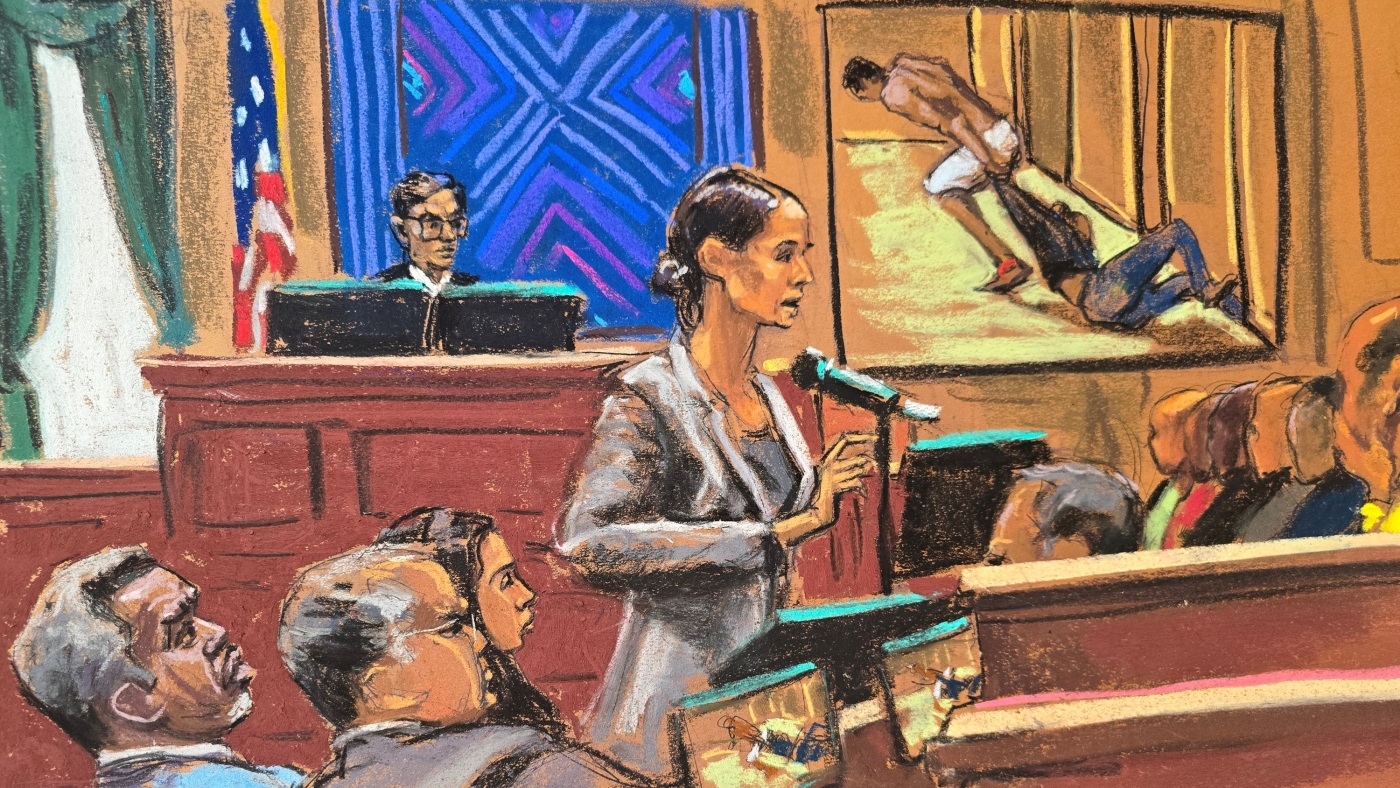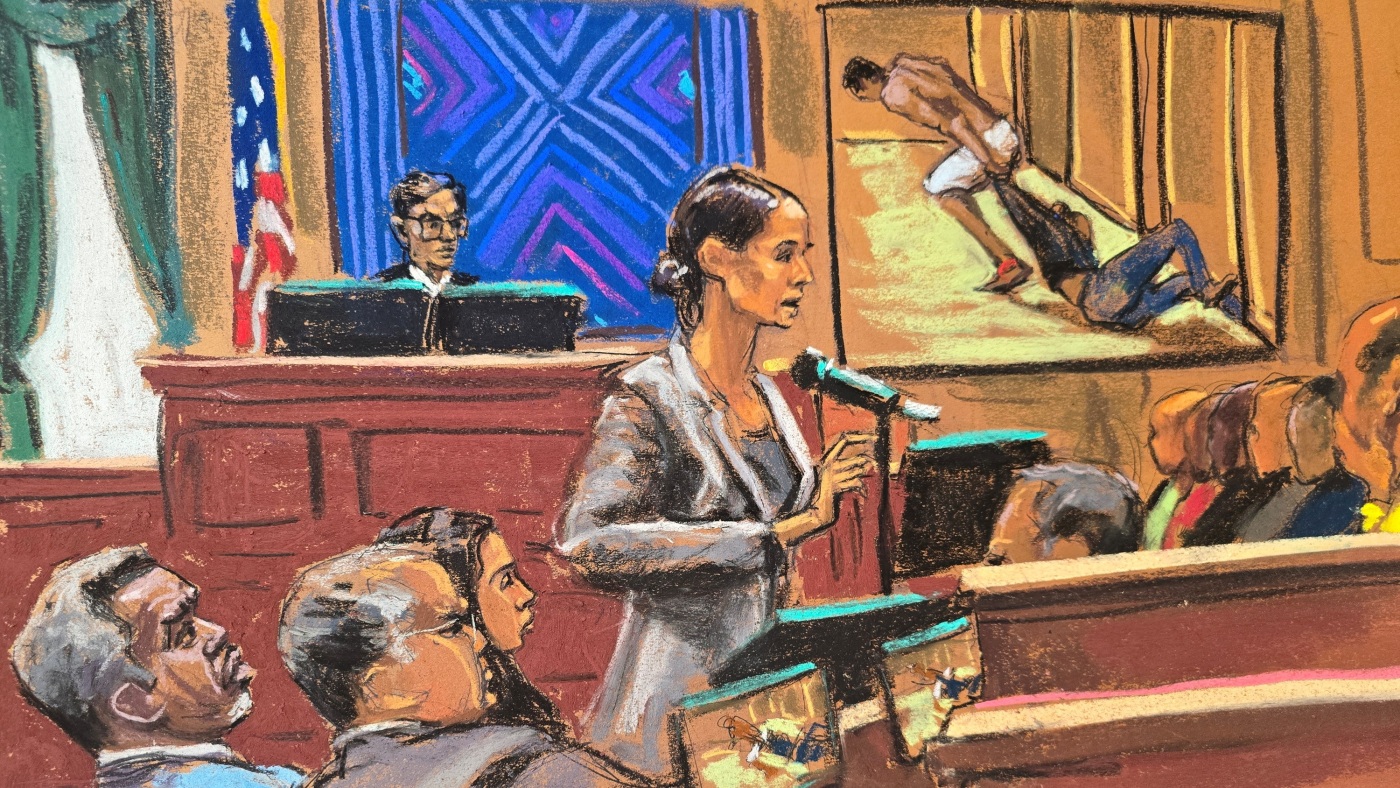vered between the abstract and the visceral, with prosecutors arguing that Combs and his associates operated a criminal enterprise under the Racketeer Influenced and Corrupt Organizations (RICO) Act. Slavik methodically outlined how Combs allegedly used his Bad Boy Records empire, his entourage, and his celebrity status to facilitate and cover up criminal activities, including sex trafficking and assault. She cited specific instances where employees and associates were allegedly coerced into silence or complicity, painting a picture of a tightly controlled network where dissent was met with threats or violence.
Prosecutors presented a pattern of behavior where Combs allegedly used his influence to exploit young women, often under the guise of professional opportunities. Slavik highlighted testimony from accusers who claimed they were lured into situations where they were pressured into sexual acts or subjected to non-consensual encounters. The prosecution argued that Combs’s wealth and fame created an environment where victims felt powerless to resist or report abuse, reinforcing the broader narrative of systemic coercion.
A recurring theme in the trial was the alleged intimidation of witnesses. Slavik pointed to instances where individuals who came forward with allegations were allegedly threatened or retaliated against, either directly or through intermediaries. She argued that this was not just about silencing accusers but also about maintaining control over Combs’s public image and legal vulnerabilities. The prosecution framed this as a deliberate strategy to obstruct justice and evade accountability.
The Defense’s Counter-Narrative: A Celebrity Under Siege
In stark contrast to the prosecution’s portrayal, Combs’s defense team sought to dismantle the government’s case by framing their client as a victim of a coordinated smear campaign. Defense attorney Joseph Tacopina delivered a fiery rebuttal, arguing that the trial was a “witch hunt” driven by jealousy and sensationalism. He dismissed the prosecution’s evidence as circumstantial and accused them of cherry-picking testimony to fit a preconceived narrative.
Tacopina’s argument hinged on several key points:
The defense contended that the prosecution failed to present definitive proof of criminal conduct. Tacopina argued that much of the case relied on hearsay and unverified claims, with no concrete evidence tying Combs directly to the alleged crimes. He emphasized that the absence of physical evidence or corroborating documentation undermined the prosecution’s claims.
Tacopina framed the trial as an attack on Combs’s reputation, arguing that the prosecution was exploiting his celebrity status to score a high-profile conviction. He pointed to the media frenzy surrounding the trial and suggested that the case was being driven by public spectacle rather than legal merit. The defense sought to portray Combs as a successful entrepreneur and philanthropist who had been unfairly targeted.
The defense raised questions about the motives of the accusers and witnesses, suggesting that some may have been driven by financial incentives or personal grudges. Tacopina argued that the prosecution’s case was built on unreliable testimony from individuals with questionable credibility, further eroding the validity of the allegations.
The Jury’s Dilemma: Weighing the Evidence
As the trial drew to a close, the jury was left with a daunting task: sifting through a mountain of evidence, testimony, and legal arguments to determine Combs’s guilt or innocence. The prosecution’s case hinged on establishing a pattern of criminal behavior, while the defense sought to poke holes in the narrative and cast doubt on the credibility of the accusers.
The jury’s deliberations will likely focus on several critical questions:
The outcome of the trial will have far-reaching implications, not only for Combs but also for the broader legal landscape surrounding celebrity accountability and the use of RICO in cases involving alleged criminal enterprises. As the jury retires to deliberate, the world watches, awaiting a verdict that could redefine the boundaries of power, influence, and justice.








